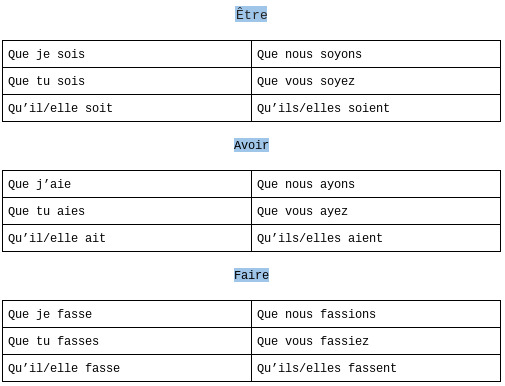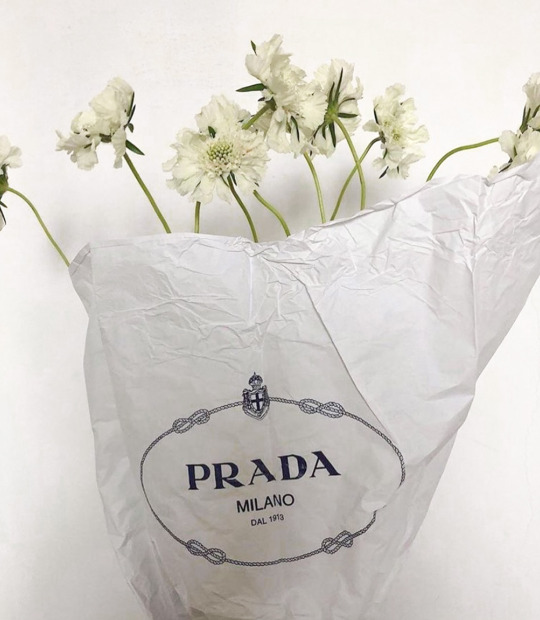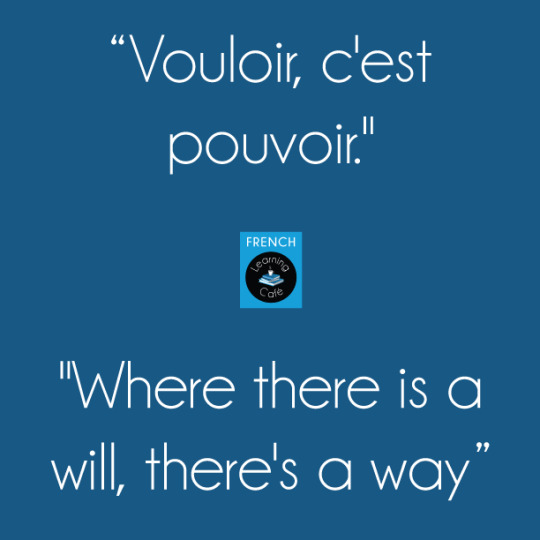Text

This is why I love Bali! Her nature attracts me!
4 notes
·
View notes
Photo

STELLA - art deco glam bridal headpiece, glamorous crystal and pearl bohemian headband, boho hair vine comb by EmmaKatzkaBridal
107 notes
·
View notes
Text
French Alphabet Pronouciation
A (ah)
B (bay)
C (say)
D (day)
E (eugh)
F (f)
G (jay)
H (ash)
I (ee)
J (g)
K (kaa)
L (ell)
M (emm)
N (enn)
O (oh)
P (pay)
Q (koo)
R (air)
S (es)
T (tay)
U (ooh)
V (vay)
W (dooble-vay)
X (ix)
Y (ee-grek)
Z (zed)
387 notes
·
View notes
Text
le visage vocabulaire

Face - le visage
Forehead - le front
Eyes - un oeil / des yeux
Eyebrow - un sourcil
Hair - des cheveux
Nose - le nez
Chin - le menton
Cheek - la joue
Lips - des lèvres
Mouth - la bouche
Ear - la oreille
Head - la tête
quelques formes de tête
Round - rong
Long - allongé
Square - carré
Rectangle - rectangulaire
Oval - ovale
Hexagon - hexagonal
Triangle (pointed up) - triangulaire pointe en haut
Triangle (pointed down) - triangulaire pointe en bas
des phrases
Avoir un beau visage - to have a beautiful face
Avoir le visage allongé - to have a long face
~brianna
84 notes
·
View notes
Text
French vocabulary
Les légumes - vegetables
l'ail (m) - garlic
l'artichaut (m) - artichoke
l'aurbergine (f) - eggplant
le bambou - bamboo
la bette - chard
la bettrave - beetroot
le brocoli - broccoli
la carotte - carrot
le céleri - celery
le champignon - mushroom
la chicorée - endive
le chou - cabbage
le chou chinois - Chinese cabbage
le chou de Bruxelles - Brussels sprout
le chou-fleur - cauliflower
le chou frisé - kale
le chou précoce - spring greengs
la ciboule - spring onion
la citrouille - pumpkin
les cœurs (m) de palmier - palm hearts
le concombre - cucumber
la courge - marrow
la courge musquée - butternut squash
la courge poivrée - acorn squash
la courgette - zucchini
le cresson - watercress
l'échalote (f) - shallot
l'endive (f) - endive
les épinards (m) - spinach
le fenouil - fennel
la fève - broad bean
le fruit de l'arbre à pain - bread fruit
la germe de soja - bean sprout
le gingembre - ginger
le gombo - okra
le haricot vert - green bean
l'igname (f) - yam
la laitue - lettuce
le maïs - corn
le navet - turnip
l'oignon (m) - onion
l'oseille (f) - sorrel
le panais - parsnip
la patate douce - sweet potato
le petit pois - garden pea
le piment - chilli
le pissenlit - dandelion
le poireau - leek
le poivron - pepper
la pomme de terre - potato
le radis - radish
le raifort - horseradish
la roquette - rocket
le rutabaga - rutabaga
le taro - taro root
la tomate - tomato
la tomate cerise - cherry tomato
le topinambour - sunchoke
la trévise - raddicchio
la truffe - truffle
244 notes
·
View notes
Text

Used after expressions of necessity, emotion, desire, and doubt.
Irregular Forms




Some irregular subjunctive phrases
Bien que… = although…
Pour que… = so that…
Afin que… = so that… (formal)
Pourvu que… = given that…
Forming the Subjunctive with Regular Verbs

For conjugating verbs into the subjunctive tense, you need to use the ils/elles form of the verb and remove the -ent to get the stem you need to use.
Ex:
jouer -> jouent -> jou___
finir -> finissent -> finiss___
attendre -> attendent -> attend___
Sometimes the stems will be the same, but you need to remember that they aren’t always the same.
Common phrases
Il faut que… = One must…
Pour que…
Bien que…
Ne croire/penser pas que… = To not believe/think that…
It is important that you arrive today. = Il est important que tu arrive aujourd’hui.
You must finish your homework. = Il faut que tu finisses tes devoirs.
~brianna
226 notes
·
View notes
Text
Learning French #learningfrench
French Slang [1/2]
Finally I finished the first part of my list of french slang. I never tought it would be that hard because, as you can imagine, it’s really not that easy to try to explain to foreigners words that you use everyday without realasing it. Some expression are so often say that everybody know what it means but can’t explain exacty the signification. Anyway if there is some words or sentence that you don’t understand because I am not clear enought you can tell me and I will try to be more understandable. Next time I will try to explain “Verlan” language and how to use it.
Slang words
Ouais : (Translation : Oui) Most of young french people use « Ouais » instead of « Oui »
Example : Person 1: Tu viens chez Sophie ? Person 2: Ouais !(Do you come at Sophie's place? Yes !)
Trop : (Translation : Very) Use to emphasis something you really like
Example : J'aime trop sa veste (I really like his jacket) or Tu as aimé la fête ? Trop !(Did you liked the party ? Very!)
Vas-y (Translation : Come on !) in that case it is use often at the beggining of a sentence to show your frustration.
Example : Vas-y fait pas ton radin ! (Come on don’t be such a miser!)
Il m'a soulé/Souler quelqu'un (Translation : Getting on my/someone nerves) When someone really irritate you
Example : Il m'a trop soulé avec son travail (He really was getting on my nerves when he was talking about his job)
Kiffer (Translation : To like) You can replace the word « aimer, adorer» in a phrase by « kiffer »
Example : Je kiffe son sac (I love her bag) or Il l'a kiffe (He likes her)
Genre (Translation : like) Same as in english
Example : Il était genre très grand (He was like really tall) or Genre il est venu seul au mariage(Like he came alone at the wedding)
Grave (Translation : Very) Same as « trop » see above
Example : Il est grave sympa (He is a really nice guy) or Il est grave beau ce pantalon (This pants is really beautiful)
or can be use to confirm something what someone sayed
Example : Tu as vu comment il était habillé aujourd'hui ?! Grave ! (Did you see how he was dress today ?! Yeah I saw that !)
C'est clair (Translation : Yeah I know) Can be use like « grave » when you want to corroborate what someone just sayed
Example : Ce test d'anglais était très dur ! C'est clair ! (This english test was really hard ! Yeah tell me about it!)
Flipper (Translation : To be afraid) Is use to say that you were scared, that you freaked out
Example : Cette voiture est arrivé de nul part et j'ai flippé (This car came out of knowhere and I freaked out) or J'ai flippé quand il m'a pas dit qu'il avait une nouvelle à m'annoncer (I freak out when he sayed he had something new to tell me)
Pas de soucis (Translation : No worries) When you want to say that there is no problem
Example : Tu peux m'aider avec cet exercice de maths ? Pas de soucis ! (Can you help me with this mathematic exercise ? Of course !) or Pas de soucis je serais là 18h (No problem I will be there at 6pm)
Avoir le seum (Translation : To be angry) Use to signify that you are angry, annoyed
Example : J'ai le seum j'ai raté mon bus (I am angry i missed my bus) or Il a le seum il a eu une mauvaise note (He is annoyed because he got a bad grade)
Laisse tomber (Translation : To let go something) Often use to say that you are annoyed by something so you prefered to let it go
Example : Laisse tomber je préfère m'en aller (I give up, I am going to leave) or Laisse tomber c'est plus mon amie (Let it go she is not my friend anymore)
Mec (Translation : A guy) Can refered to just some random guy or someone boyfriend
Exemple : Ce mec là bas(This guy over there) or Mon mec est venu me voir (My boyfriend came to see me)
Mytho (Translation : A liar) Use to say that someone is a liar or he tells lies
Example : Ce mec c'est un mytho (This guy is a liar) or C'est juste des mythos tout sa (It’s just a bunch of lies)
Bagnole/Caisse (Translation : A car) To refered to a car
Example : Il vient de s'acheter une nouvelle bagnole (He just bought a new car) or Elle a une magnifique caisse (She has a splendid car)
Se barrer/Se casser/Se tirer (Translation : To leave) When someone leave a place but show his/her frustration or worries
Example : Je me tire de cette endroit (I am leaving this damn place) or Cette endroit n'est pas sûr je me casse (This place is not safe I prefer to leave)
Un pote (Translation : A friend) You can replace the word « ami » (friend) by « pote »
Example : C'est mon meilleur pote (He is my best friend)
Se marrer (Translation : To have a laught) When you had a big laught with someone
Exemple : On est allé voir une comédie et on s'est bien marrer !(We went to see a comedy and we had such a laught!)
C'est hallucinant/J'hallucine (Translation : It’s unbelievable) When something is incredible in a good or a bad way
Example : C'est hallucinant de voir le nombre de vélos qu'il y a dans Paris (It’s amazing to see how much there is bikes in Paris) or J'hallucine elle sort avec mon ex ! (I can’t believe it she is going out with my ex!)
You can also hear : « C'est l'hallu » It’s the contraction of « C'est hallucinant »
C'est mortel (Translation : It’s rad) When something is really good, really fun
Example : Ce grand huit était mortel, on y retourne (This rollercoster was rad we have to do it again) or Cette voiture est mortel (This car is rad)
Le taff/Le boulot (Translation : Job) You can change the word « travail » (job, work) by « boulot » or « taff »
Example : Je dois aller au taff (I have to go to work) or Je l'ai rencontré au boulot (I met him at work)
C'est la loose (Translation : Bad luck, misfortune) I am pretty sure it came from the english verb « to loose ». It can be use when someone had a bad day or he try to do things but it led to misfortune after misfortune.
Example : C'est la loose on m'a volé mon scooter (I really have no chance, someone stole my scooter) or C'est la loose je voulais réviser mon examen mais il n'y a plus électricité chez moi (I can’t believe it I wanted to study for my exam but there no more electricity at my home)
Je m'en fiche/Je m'en fout (Translation : I don’t care) Means that you don’t give a heck. These phrases can’t be use with anybody. You can say it with your friends but not with your boss or someone important to you (« Je m'en fout » can be translate by « I don’t give a f**k)
Example : Je m'en fiche j'ai autre chose à faire (I don’t care I have something else to do)
Faire style (Translation : To pretend) When you talk about someone who pretend to do something
Exemple : Il fait style qu'il c'est faire du skate mais c'est des conneries (He pretends that he can do skate but it’s total bulls***e) or J'ai fait style que j'avais appris m'a leçon par cœur (I pretend I knew my lesson buy heart)
Contracted Sentences
French people tend to speak really fast. To adapted our phrases to the way we speak we like to « contracted » words together. For exemple If you are an advanced french speaker, you know that for the negation we use « ne » and « pas ». “Je ne peux pas venir” ( I can’t come). Well, when we speak, and only when we speak, most of the time we don’t say the word « ne ». So in the previous example we tend to say « Je peux pas venir ». It’s still mean the same thing. A bit like in english with « He does not know » and « He doesn’t know ».
Further more as we speak more and more faster we « eat » most of the words (I don’t know how to say it) in the phrase « Je ne peux pas » become « J'peux pas »
Some examples :
Je ne sais pas (I don’t know) =>Je sais pas => J'sais pas (Prononce it like «ché pa »
Je m'en fout (I don’t care, see above) => J'men fout => M'en fout (Prononce it like « cheu men fout »
Je me barrer/Je me casser/Je me tirer (I leave, see above) => J'me barre/J'me casse/J'me tire
Je vais voir (I will see) => J'vais voir
Je ne suis pas sur (I am not sure) => Je suis pas sur => J'suis pas sur (Prononce it like « chui pas sur)
I don’t know if I am clear ? :/
« Tic de langage »
French people tend to start there sentences with filler words which are not important or change anything about the sentence but that you can hear often. We call it « tic de language »
Du coup,… : Corresponding to « So what » or « And so,… »
Example : Du coup j'ai oubliée mes clés chez moi « And so, I forgot my keys at my home »
En fait,… Corresponding to « let me explain » or « in fact » if you translate litteraly
Example : En fait, je ne l'ai jamais rencontré (In fact, I never met him)
Bref : Corresponding to « Anyway »
Example : Bref, c'était l'enfer cette journée (Anyway, this day was just like hell)
Bah… : Like the « Hum » in English when you hesitate before saying what you have in mind
Example : Bah…j'ai toujours été seul à cette table (Hum…I always have been alone at this table)
Non, mais…One of the mystery of modern french. You can use this sentence simply when you want to contradict what someone just sayed
Example : Non mais je t'arrête tout de suite tu as totalement tord (Sorry, I stop you right now you are completely wrong)
Or you can use it to confirm someone’s argument
Example : Person 1: Paul et Aline ne sont plus ensemble, je pense que c'est pour le mieux. Person 2: Non mais ils on eut raison (Person 1: Paul and Aline are not a couple anymore, I think it is for the best. Person 2: I totally agree, they were right)
I know crazy !
Hope you enjoy it ;)
5K notes
·
View notes
Text
Learning French
French Vocab- Geography Part 2
une côte: a coast
une plaine: a plain
une vallée: a valley
une montagne: a mountain
une colline: a hill
une île: an island
un pont: a bridge
la mer: a sea
un océan: an ocean
une rivière: a river
un fleuve: a river (flowing to sea)
un ruisseau: a brook, a stream
le nord: north
le sud: south
l'est: east
l'ouest: west
un peuple: a people, a nation
une tribu: a tribe
autochtone: native
étranger (-ère): foreign
inconnu(e): foreign, unknown
489 notes
·
View notes
Text
Learning French
50 Advanced French Phrases
en outre - moreover
par ailleurs - besides
en accord avec - agreeing with
toutefois - however
cependant - however, yet, nevertheless
en revanche - on the other hand, in contrast
au contraire - on the contrary
contrairement à - contrary to
d'un autre côté - on the other side
tout d'abord - firstly
en guise d'introduction - by way of an introduction
en guise de conclusion - In conclusion
en bref - in brief
pour finir - finally
enfin - at last, finally
ainsi - thus
surtout - especially
notamment - notably
parmi - among
d'après - according to
selon - according to
jusqu'à un certain point - to a certain extent
toujours est-il que - nevertheless
d'une façon ou d'une autre - one way or another
pour la plupart - for the most part, mostly
par contraste - in contrast
paraît-il - so it seems
également - equally
de nos jours - today, nowadays
parfois, quelquefois - sometimes
autrefois - previously, formerly
à l'époque de - in the age of
étant donné que - given that
quand même - even so, nevertheless
sans aucun doute - no doubt
de plus en plus (+ adj) - more and more (+ adj)
de plus en plus de (+ noun) - more and more (+ noun)
certes - admittedly
quant à - as for
de la même manière - in the same way
bien loin de - far from
afin de + inf - in order to
désormais - from now on
un changement en mieux - a change for the better
dans ce but - for this purpose
à en juger par - to judge by
par bonheur - fortunately
ou bien - or else
pour ainsi dire - so to speak
au niveau de la planète - on a global level
17K notes
·
View notes
Photo
White house

http://thewhitehousedaylesford.com.au/rooms/studio/
4K notes
·
View notes
Photo
Wedding Gown






Saiid Kobeisy Bridal 2018 Collection
19K notes
·
View notes





